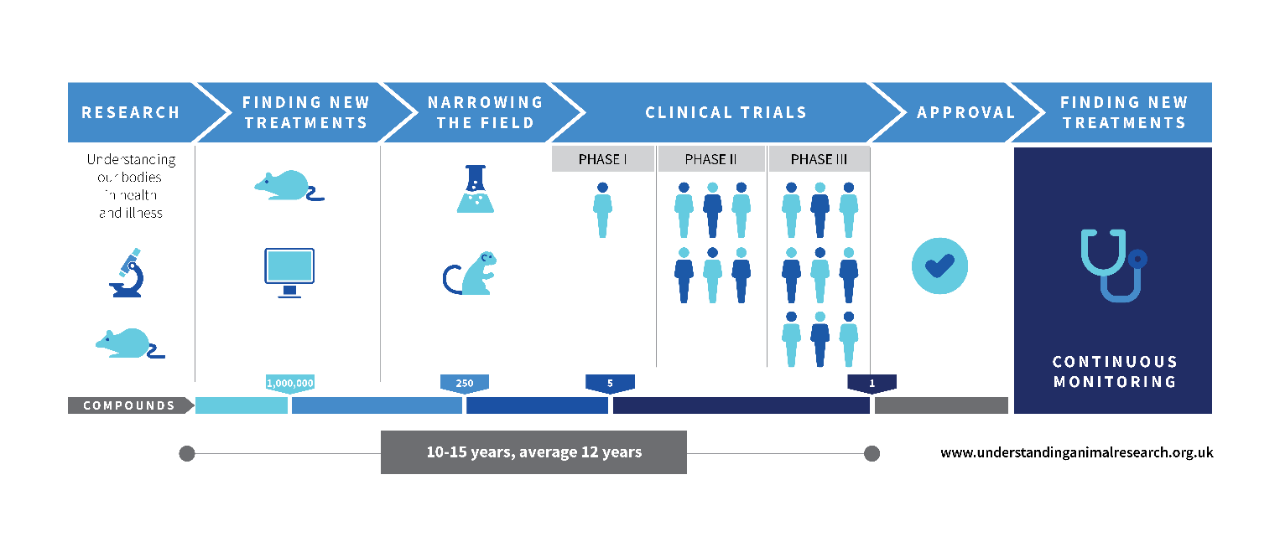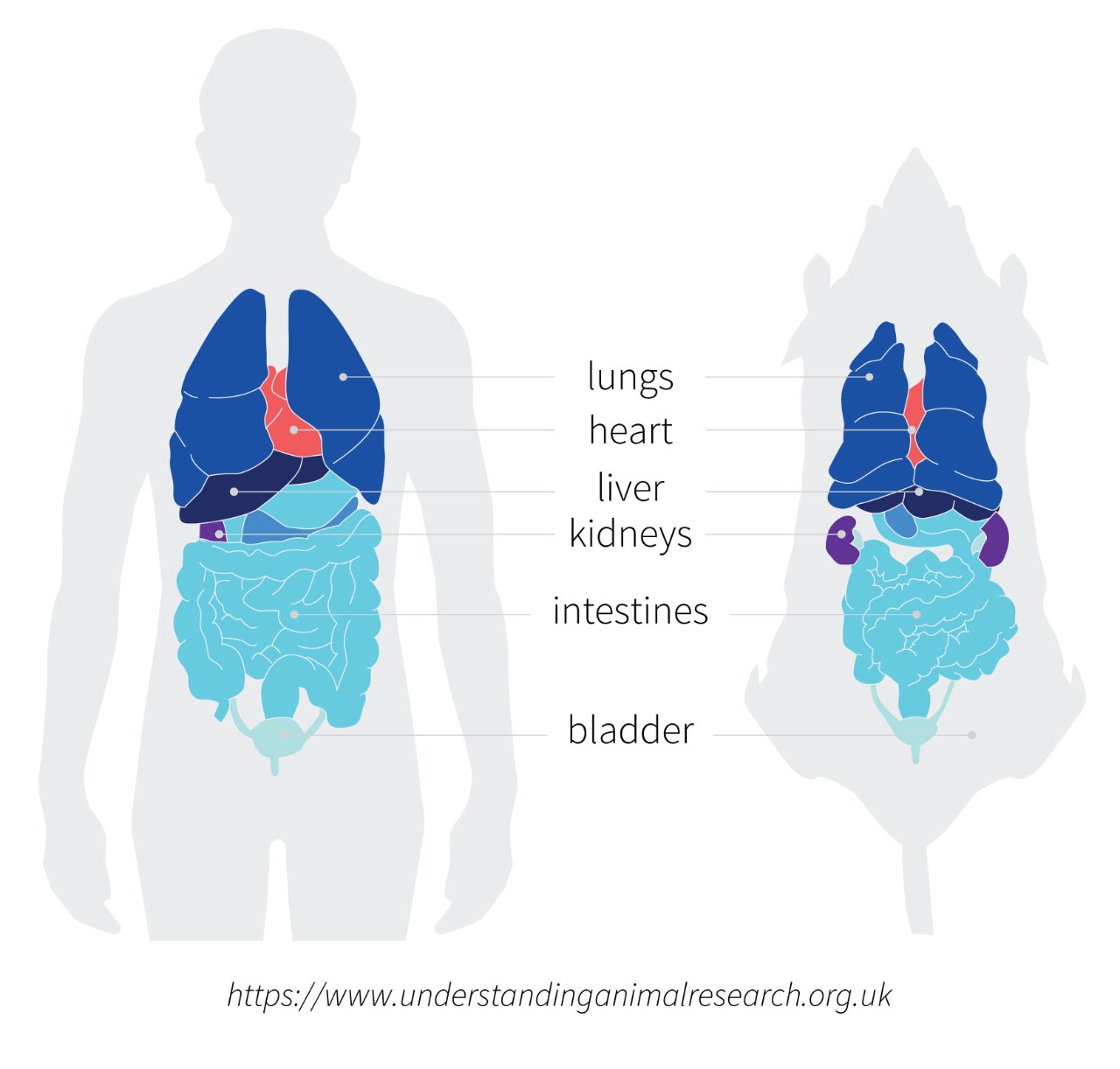Animal Research Provides Safe and Reliable Results
Many lifesaving advances in medicine and safety have been drawn from the scientific discoveries made through animal research. Examples include treatments for AIDS, cancer, diabetes, heart-related ailments, injury-induced trauma and other medical conditions. While there has been significant progress in the last couple of decades, many diseases still haven’t been effectively prevented or cured (for example cancer, diabetes, Spinal Muscular Atrophy, Alzheimer’s or Ebola) and are the subject of intense biomedical research discovery and development worldwide.
Computer-modeling programs, cell cultures and organs-on-chips play a key role in biomedical research. However, in the current state of scientific progress, they cannot completely mimic the complexity of the entire human organism and so cannot yet replace animal testing.
Animal research demonstrates how a new medicine reacts in a whole, living body. This can provide an indication of a drug’s safety and efficacy before it is tested in human volunteers and patients. In fact, governments throughout the world require such studies to help ensure new medicines are safe.
The Making of a Medicine
New drugs must be tested in animals before human clinical trials to ensure the safety of patients and volunteers.
FDA non-clinical regulations: https://www.accessdata.fda.gov/scripts/cdrh/cfdocs/cfcfr/CFRSearch.cfm?CFRPart=58
OECD international non-clinical regulations: https://www.oecd.org/chemicalsafety/




